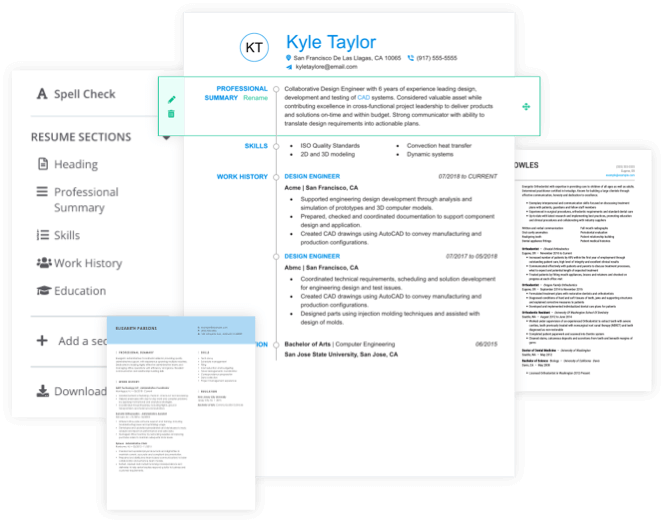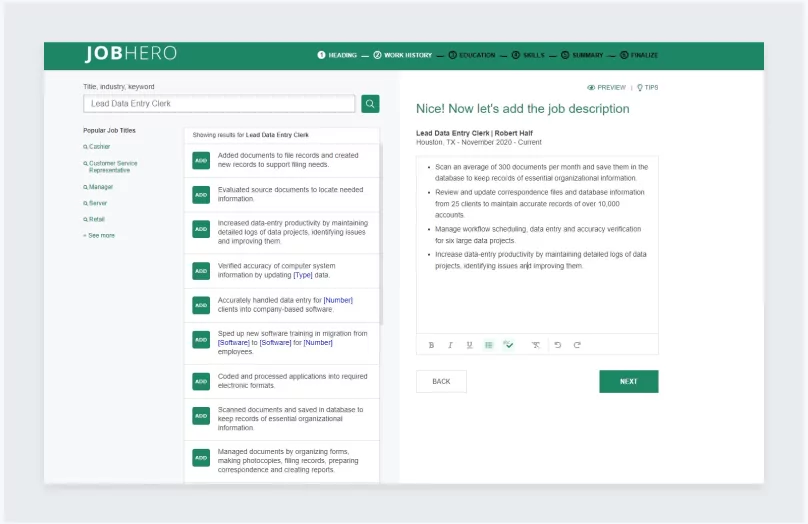- Featured in:

Organizations hire compliance analysts to ensure their actions meet governmental and industry standards. Healthcare systems, for instance, may employ compliance analysts to keep up on regulations concerning privacy, safety, and the rights of patients and then convey that information to leaders in order to make procedural changes. An asset management firm could seek compliance analysts to verify that client restrictions are being observed. School districts might seek services to monitor and document compliance of special education programs.
Compliance analysts generally work full-time business hours in an office setting. Though they spend a good deal of time on a computer, they may also travel or move around a facility to gather information from various departments and to teach staff about new policies. Future career paths for compliance analysts might include positions like compliance manager or chief compliance officer.
Our certified resume writers have created a library of resume samples to show you exactly what a strong resume looks like. Use them as-is or customize them to your needs.
Improve your application with a personal message! Your resume may summarize your qualifications, but a cover letter can help you express your professional accomplishments and working style. Pair these cover letter templates with our builder subscription to unlock AI-powered text templates and professional designs that will help you submit a complete application.
Compliance Analyst Duties and Responsibilities
Although specific job duties for compliance analysts vary based on their employer, many core tasks tend to be assigned to all holding that position. A look at job listings reveals that applicants should be prepared to do the following:
Research Regulations
Compliance analysts stay up-to-date by monitoring governmental regulations and standards. They attend educational workshops and read regulatory bulletins affecting their industry to gather information on what these changes mean for their employer and the business they conduct.
Communicate
Taking the knowledge they’ve gained, compliance analysts discuss concerns with the appropriate parties. Actions might include informing management of a new governmental regulation, going over procedural adjustments with staff members, and answering questions. In a healthcare setting, for example, compliance analysts might update personnel on new cancer protocols and field inquiries about specific changes.
Monitor
Since it’s better to spot possible problems before they become major issues, compliance analysts regularly look things over. They may conduct audits, review compliance reports, and inspect activity. When new employees are hired, the compliance analyst may make sure they have received proper training in accordance with legal guidelines.
Handle Paperwork
Compliance analysts gather data and other information and put it in required formats. For instance, they may write out fact-filled reports for company executives or compile relevant statistics for a regulatory agency.
Compliance Analyst Skills and Qualifications
Mistakes can be costly to a company, so compliance analysts make certain every detail gets the proper attention and that nothing slips through the cracks. Their research must be thorough and their actions implemented properly. Other factors critical to getting the job done include:
- Industry knowledge – compliance analysts need to be thoroughly versed in regulations that affect their sector; for example, someone involved in trade compliance must be familiar with U.S. Customs rules
- Communication skills – interacting with a variety of people both inside and outside of the company requires excellent verbal and written skills
- Organization skills – with specific documentation often required to demonstrate compliance, checklists and other methods of sorting information serve a compliance analyst well
- Computer competency – in addition to research and correspondence, compliance analysts frequently use computers to input and manipulate data
Compliance Analyst Education and Training
Compliance analysts generally possess a bachelor’s degree in a field such as accounting, business, or their company’s specific industry (such as healthcare or insurance). A graduate degree can increase employment prospects. Candidates whose resumes show evidence of success at project management, legal research, and risk management are often particularly attractive. As legal requirements and industry standards are always changing, compliance analysts need to be lifelong learners in order to remain up-to-date and relevant.
Compliance Analyst Salary and Outlook
The median salary for compliance analysts, according to PayScale, is about $55,700 per year. Professionals on the low end of the pay range earn roughly $39,600 annually, while the highest paid make more than $78,000. Bonuses and profit-sharing can increase compensation. Compliance analysts usually receive health insurance and paid vacation time.

Helpful Resources
As you contemplate a career as a compliance analyst, these sources of additional information may be helpful:
How to Be a Wildly Effective Compliance Officer: Learn the Secrets of Influence, Motivation and Persuasion to Become an In-Demand Business Asset
– readers praise this book for offering advice that compliance professionals can apply both to their work and their personal lives
Compliance Management: A How-To Guide for Executives, Lawyers, and Other Compliance Professionals
– get a better grasp of what compliance is all about with this publication that reviewers call “insightful” and “extremely relevant”
Compliance Analyst Resume Help
Explore these related job titles from our database of hundreds of thousands of expert-approved resume samples:




